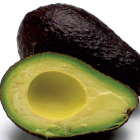 There’s been a lot of talk about high-sodium diets and how too much salt can damage health. It’s hidden in everything, so most people get too much. But what about sodium’s electrolyte antagonist potassium? It can actually help reduce the unhealthful effects of high sodium.
There’s been a lot of talk about high-sodium diets and how too much salt can damage health. It’s hidden in everything, so most people get too much. But what about sodium’s electrolyte antagonist potassium? It can actually help reduce the unhealthful effects of high sodium.
What’s more, according to the January/February ’13 Well Being Journal, “An athlete may need more [potassium] than the average person.” One reason is that the nervous system needs it to transmit messages—like for muscle contraction and coordination.
Potassium also fortifies digestive enzymes to enhance sugar disposal, fat metabolism, brain function, lung respiration and even joint health. Whew.
There is no Recommended Dietary Allowance for potassium, but most nutritionists recommend 2.5 to three grams a day. Interesting that most people today fail to meet even those minimal needs. Why? Because the usual diet consists of packaged, processed, refined foods—which are usually packed with sodium.
When sodium concentration is high, potassium is leached from your body and excreted. On the other hand, when potassium is higher than sodium, your body is better able to release excess sodium and water weight.
Fruits and vegetables are the potassium powerhouses, particularly avocados and winter squash—one gram per one-cup serving.
If you eat lots of fruits, vegetables and fish like flounder and salmon, you may not need extra potassium. Check your vitamin-and-mineral tablet as well. You’re no doubt getting it there. Plus, if you use Muscle Meals meal replacement, you get 600 milligrams per packet, along with other minerals, vitamins and 40 grams of micellar casein and whey protein. [Available at Home-Gym.com.]
—Steve Holman




















You must be logged in to post a comment Login